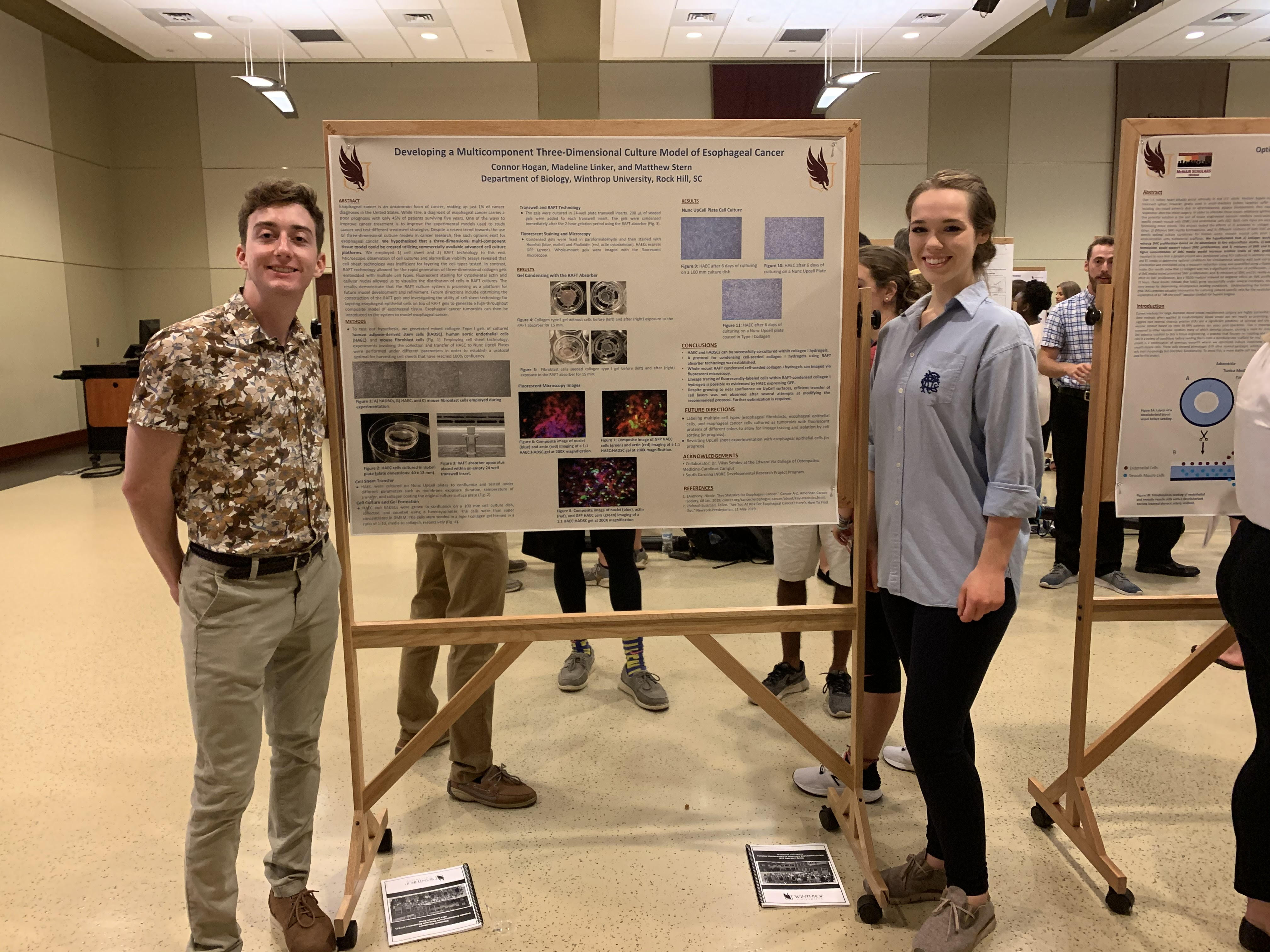The Summer Undergraduate Research Experience allows students at Winthrop University to work with faculty on cutting-edge research in a variety of fields.
Students studying chemistry, physics, geology and mathematics listen to speakers at seminars given at Winthrop over the summer and receive training before starting their research. Students can present their project at the end of the summer at a ‘summer symposia’ and a fall poster session. Online records of the SURE program can be dated back to 2011.
Diana Boyer, a professor of geology at Winthrop, has been organizing the event for the last two years. Boyer described the event as a “grand finale” where students can showcase their research they worked on all summer. Boyer praised the program for allowing students to become “immersed in research” which they can later show to medical schools and graduate programs. Boyer enjoyed being able to interact with her students in a professional setting “almost as peers.”
Rachael Rowe, a junior biology major who presented at the event, praised Winthrop for having an undergraduate research program, as some “big colleges” do not provide their students with the same experiences. Rowe and her research partner, junior Whitney Player, studied the gut content of juvenile dragonflies at Winthrop Lake with the help of Cynthia Tant, an assistant professor of biology at Winthrop.
“Aquatic food webs are complex, and understanding interactions in these food webs can give an indication of ecosystem health,” Rowe said, adding that the research helped prepare her for her desired field and inspired her to pursue her PhD.
Sophomore mathematics major Suzanna Thomson said that her dream job would be to work in Connecticut “in a corner office with a big window” and research at a higher level and teach a few classes. Thomson worked on her undergraduate research with junior computer science and mathematics major Paul Hazelton. Their project explored the fundamental Theorem of Ramsey Theory. Hazelton says he does not want to do one thing his whole life but aspires to be a video game designer.
Holdyn Ferguson, a junior biology major, explained how she enjoyed being able to explore the field she plans to pursue by going to medical school. Ferguson said that she aspires to become a dermatologist. Ferguson’s research, which received assistance from associate professor Matthew Stern, centered around heart disease and heart bypass surgeries. Ferguson said that her biggest challenge was just having to wait between processes for results “waiting for machines to grow and machines to analyze.”
Connor Hogan and Madeline Linker, both biology majors, agreed that the SURE program prepared them for the medical field, which both students plan to enter. Hogan and Linker worked with Stern, researching and developing multicomponent three-dimensional culture models of esophageal cancer. The project until this point took eight weeks, but Hogan will be working on it into the spring. Linker plans to attend medical school and hopes to do more research on cancer at a higher level. Hogan will pursue an MD and aspires to be a plastic surgeon. Linker described how “seeing cells behave on a molecular level has been eye-opening experience” of how cells function and better understands them to form models.
Sarah Fleetwood and Josiah Bauer, who are both sophomore mathematics majors, researched modeling the latent reservoir in the dynamics of HIV infection. Both students plan to pursue PhDs. Fleetwood said that she plans to earn a PhD in applied mathematics. Bauer said that he is unsure what program he will pursue but is excited to continue undergraduate research this summer and described his first stint with SURE as a “good starting point.”
For students interested in learning more about SURE, contact Robin Lammi, the director of undergraduate research, in the office of undergraduate research in Dinkins 222.
Photo: Ann Marie Juarez/ The Johnsonian




